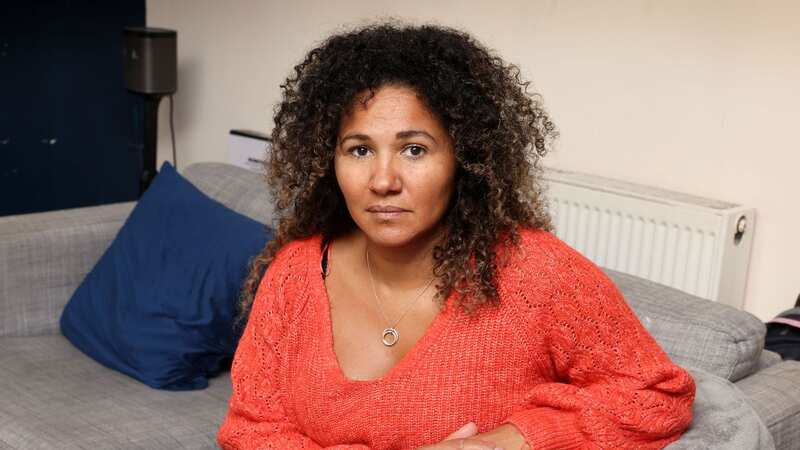'I live in fear - if the DWP makes a mistake, they will demand the money back'
Natalie, a civil servant from Salford, feels physically sick when she sees an envelope from the Department for Work and Pensions.
“You get to a point where it makes you feel ill,” she says. “If I see an envelope from them, I feel sick.” The mother-of-four is one of more than a million people who may have been mistakenly overpaid Universal Credit and Tax Credits – and now face brutal repayments that risk pushing families into poverty.
“It’s their mistake but it doesn’t matter,” says Natalie, 42, who must now find £90 a month from an already stretched income. “They don’t seem to take responsibility for their own errors. The £90 has to come from somewhere, but where?” Another woman told us: "You live in fear. If you are paid anything at any point, you know they could make a mistake and ask for money back. And when you’re living on a budget that’s terrifying – it means you don’t have any peace of mind.
The cost of living crisis – set to further worsen this winter – is already making life unmanageable for millions. But Natalie and hundreds of thousands of people on low incomes also now face eye-watering monthly deductions, to correct errors made by government officials.
 Mum Kitty Lee-Watson (Adam Gerrard / Daily Mirror)
Mum Kitty Lee-Watson (Adam Gerrard / Daily Mirror) Ruth Talbot wants action
Ruth Talbot wants actionWhile other debt repayments are tightly regulated, the DWP is able to claw back up to 25% of someone’s monthly UC income. One mum told us: “It’s state-enforced poverty isn’t it?” In a recent court case, the DWP admitted 370,000 claimants had received Universal Credit overpayments classified as ‘official error’ in just one year – 2021-22 – adding up to more than £228m.
 Teachers, civil servants and train drivers walk out in biggest strike in decade
Teachers, civil servants and train drivers walk out in biggest strike in decade
The government’s own reporting shows that Universal Credit overpayments “due to Official Error” rose to £250m in the financial year ending 2023. Meanwhile, more than 800,000 people on Universal Credit were hit with benefit deductions last year because they were overpaid Tax Credits. This amounted to a third of households receiving them.
Charities and action groups including Single Parent Rights and the Money Advice Trust are now calling for a cap on benefit deductions at 5%. “It’s unconscionable that this government are leaving families struggling, especially given the current cost of living crisis, often due to mistakes made by the DWP,” says Ruth Talbot, founder of Single Parent Rights.
“Alongside other groups, we are calling on the government to cap benefit deductions due to overpayments at 5%.” Despite the scale of these errors, more and more households are being “migrated” to UC every month – with Northern Ireland and South Wales among the latest to face migration this week.
Kitty Lee-Watson, 37, is having to cut back on food shopping to cover the £141 per month being taken from her Universal Credit. Kitty, from Crawley, West Sussex, has struggled to find work that fits around being a lone parent to four disabled children under 14. Worried she’d been overpaid, Kitty called the DWP on two separate occasions to check her account and was told both times there was nothing owing.
“I even rang the debt management department and was told the same,” she says. “After that, I thought, ‘Well, it must be OK’.” Nine months later, Kitty received a letter saying she had been overpaid. “Universal Credit is my only income, so to suddenly lose £140 a month is tricky,” she says. “We live to a really tight budget where every penny is accounted for. There are no more corners to cut.
“It makes me really angry that I asked and asked, and because someone didn’t do their job properly, I’m in this situation. If you’re on a fixed income, to lose it for whatever reason is really difficult – it affects the whole family, especially at this time of year. They’re pushing you further into poverty.”
A Government spokesperson said: “We have support in place to help people manage repayments and have reduced the standard cap on deductions twice in recent years.Universal Credit deductions provide a last resort repayment method and help to recover taxpayers’ money when over- payments are made.
“But we recognise people are already struggling with the cost of living which is why the Government is bearing down on inflation and providing record financial support worth an average £3,300 per household, raising benefits by over 10% this year.” Ruth Talbot says she also hears from many single parents whose Universal Credit is being deducted to pay back old overpayments through the Tax Credit system.
Michelle Appleby, 43, works for an additional needs support charity, in Edinburgh. After a period of being underpaid tax credits, leaving her family struggling, she says HMRC finally awarded her £1,800 in July. Then three weeks later, the mother-of-two says she was told she’d been overpaid and had to pay back £1,200.
“They announced they’d overpaid me, and it was going to come out of my Universal Credit payments,” Michelle explains. “Luckily, I didn’t trust them at all – so I had kept hold of the £1,800.” This week we spoke to another single parent who asked to remain anonymous, who says she had no idea she was being overpaidUniversal Credit.
 Rishi Sunak must suspend Dominic Raab during bullying inquiry says union chief
Rishi Sunak must suspend Dominic Raab during bullying inquiry says union chief
“I ended up more than £3,000 in debt to my childcare provider,” she told us. “It was a case of, ‘Do I put food on the table or pay for childcare?’ I couldn’t do both. I had no choice but to make the heartbreaking decision to leave my job and give up our home. I had to move back into my parents’ house.
“Because of their mistake and the way they forced me to pay, I went from being someone with their own home and a full-time job, someone contributing to the economy, to someone who felt like a burden on the state, dependent on benefits.”
Read more similar news:
Comments:
comments powered by Disqus


































